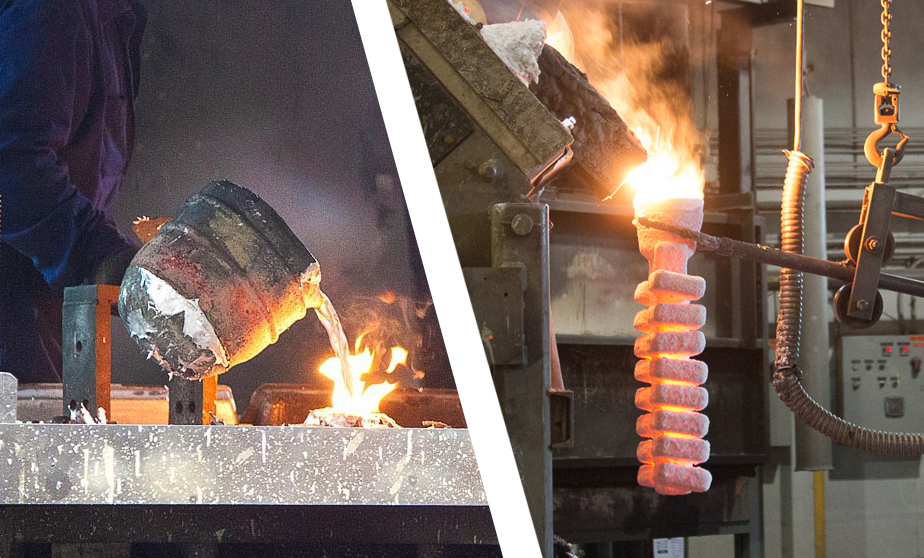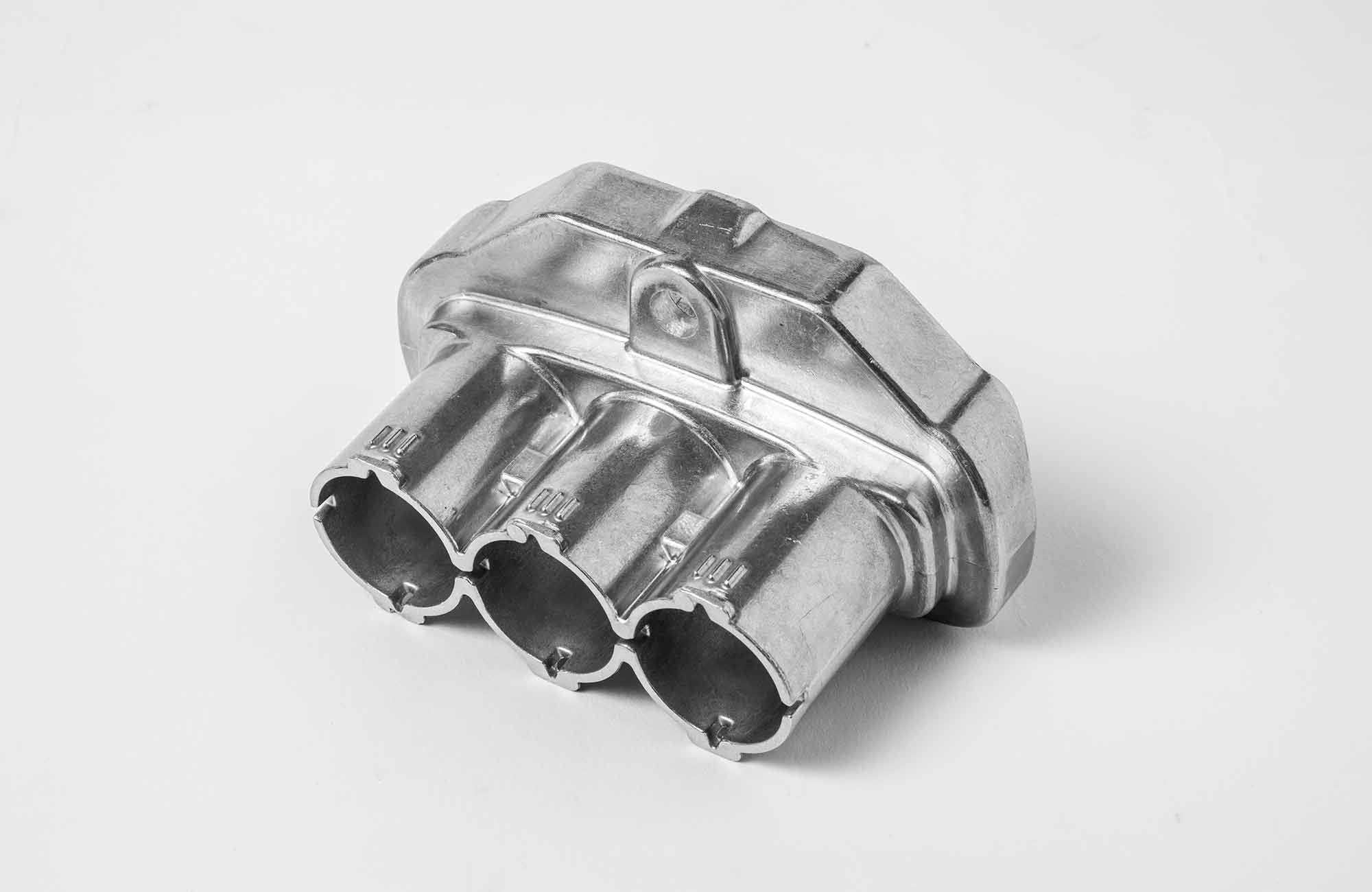The Definitive Guide to Alcast Company
The Definitive Guide to Alcast Company
Blog Article
Some Known Factual Statements About Alcast Company
Table of Contents8 Easy Facts About Alcast Company ShownThe Basic Principles Of Alcast Company A Biased View of Alcast CompanyRumored Buzz on Alcast CompanySome Of Alcast CompanyAlcast Company - The Facts
The subtle difference depends on the chemical web content. Chemical Comparison of Cast Light weight aluminum Alloys Silicon advertises castability by lowering the alloy's melting temperature level and enhancing fluidness during casting. It plays an essential duty in allowing intricate molds to be filled up properly. Furthermore, silicon contributes to the alloy's toughness and wear resistance, making it valuable in applications where resilience is essential, such as vehicle parts and engine components.It also improves the machinability of the alloy, making it simpler to refine into ended up items. By doing this, iron contributes to the general workability of aluminum alloys. Copper raises electric conductivity, making it beneficial in electrical applications. It also improves deterioration resistance and contributes to the alloy's general toughness.
Manganese adds to the toughness of light weight aluminum alloys and improves workability (Aluminum Casting). It is commonly used in functioned aluminum items like sheets, extrusions, and profiles. The visibility of manganese aids in the alloy's formability and resistance to cracking throughout fabrication procedures. Magnesium is a light-weight component that supplies strength and effect resistance to aluminum alloys.
Not known Details About Alcast Company
It enables the manufacturing of light-weight components with excellent mechanical homes. Zinc boosts the castability of aluminum alloys and helps control the solidification process during casting. It boosts the alloy's stamina and solidity. It is often located in applications where detailed shapes and fine information are needed, such as attractive spreadings and specific automobile parts.

The main thermal conductivity, tensile stamina, return stamina, and elongation vary. Select suitable resources according to the performance of the target item produced. Among the above alloys, A356 has the highest thermal conductivity, and A380 and ADC12 have the most affordable. The tensile limit is the opposite. A360 has the very best yield strength and the highest possible prolongation price.
Alcast Company for Dummies

In precision spreading, 6063 is well-suited for applications where detailed geometries and high-quality surface finishes are paramount. Instances include telecommunication enclosures, where the alloy's superior formability permits streamlined and visually pleasing styles while keeping architectural honesty. In the Illumination Solutions sector, precision-cast 6063 components develop classy and efficient lighting components that require detailed shapes and good thermal efficiency.
The A360 shows superior prolongation, making it ideal for complex and thin-walled components. In accuracy spreading applications, A360 is well-suited for sectors such as Customer Electronics, Telecommunication, and Power Tools.
The Best Guide To Alcast Company
Its special buildings make A360 a beneficial option for precision casting in these sectors, boosting product sturdiness and quality. Aluminum alloy 380, or A380, is a commonly made use of spreading alloy with numerous unique features. It uses outstanding castability, making it a suitable choice for precision casting. A380 displays excellent fluidity when molten, making sure detailed and thorough molds are properly recreated.
In precision casting, light weight aluminum 413 beams in the Consumer Electronic Devices and Power Equipment markets. It's commonly utilized to craft elaborate components like smart device real estates, cam bodies, and power device cases. Its accuracy is remarkable, with tight tolerances approximately 0.01 mm, ensuring flawless product assembly. This alloy's superior deterioration resistance makes it an exceptional choice for outside applications, ensuring resilient, long lasting products in the mentioned industries.
See This Report on Alcast Company
As soon as you have actually made a decision that the aluminum pass away casting process is suitable for your task, an important next step is deciding on one of the most proper alloy. The aluminum alloy you select will considerably affect both the spreading procedure and the homes of the end product. As a result of this, you must make your choice carefully and take an informed strategy.
Figuring out the most ideal light weight aluminum alloy for your application will suggest weighing a wide array of characteristics. The first category addresses alloy qualities that impact the production procedure.
Some Known Questions About Alcast Company.
The alloy you pick for die spreading directly impacts several elements of the casting procedure, like just how simple the alloy is to work with and if it is susceptible to casting defects. Warm breaking, additionally recognized as solidification splitting, is a common die casting flaw for light weight aluminum alloys that can lead to interior or surface-level tears or fractures.
Particular aluminum alloys are a lot more prone to warm splitting than others, and your option must consider this. It can damage both the actors and the die, so you must look for alloys with high anti-soldering residential or commercial properties.
Corrosion resistance, which is already a significant attribute of light weight aluminum, can differ considerably from alloy to alloy and is an essential particular to think about depending upon the environmental problems your item will be subjected to (Aluminum Castings). Wear resistance is one more home frequently sought in light weight aluminum items and Get More Info can separate some alloys
Report this page